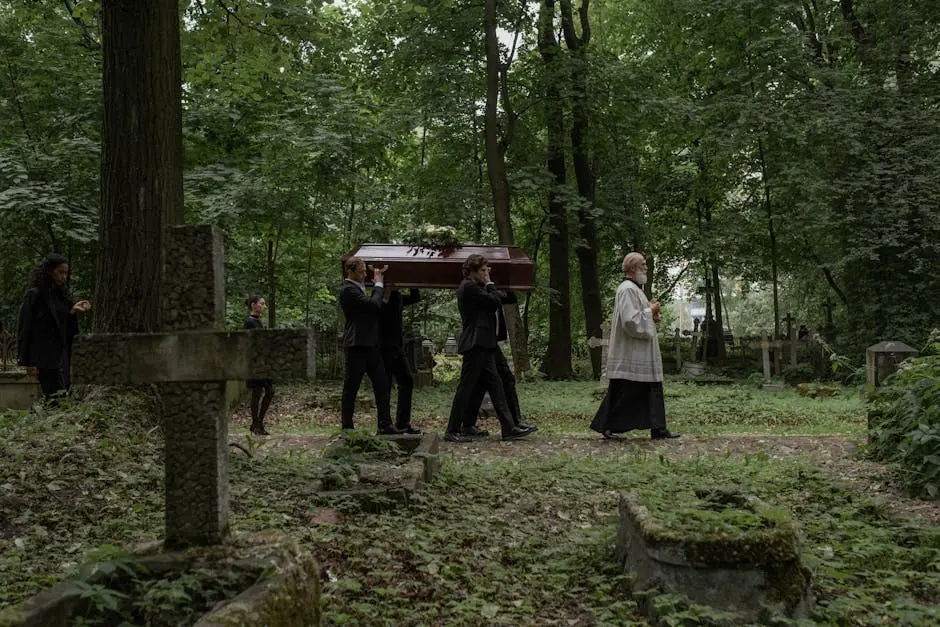Navigating the complexities of funeral service education can be overwhelming for families, especially during times of grief. This guide aims to simplify the process, providing valuable information that empowers families in Pueblo, CO, to make informed decisions regarding funeral services.
Understanding Funeral Service Education
Funeral service education encompasses the study of various practices, ethics, and laws governing the industry. Families should familiarize themselves with its components to understand better what options are available.
The nuances of funeral service education go beyond simple burial practices. Understanding the legalities, including licensing requirements and state regulations, is paramount. This not only aids families in making informed decisions but also ensures that they are engaging with qualified professionals.
Another fundamental aspect of this education involves ethical considerations, such as how to provide support to grieving families. This human connection can make a significant difference, and knowing that a funeral service provider has been trained in these areas offers comfort.
In the context of Pueblo, understanding local customs and cultural sensitivity is equally crucial. The education programs often include modules on the various traditions that families may wish to honor. This focus on community makes for a more personalized service.
Choosing the Right Educational Institution
Selecting a school for funeral service education is a crucial step. Consider factors such as accreditation, program offerings, and location. Here’s what families in Pueblo should keep in mind when making their choice.
Accreditation is arguably one of the first things to check. Institutions accredited by the American Board of Funeral Service Education (ABFSE) have met high educational standards, often translating into better training for future funeral directors. Families should prioritize these schools to ensure comprehensive education.
Next, look at the program offerings. Some institutions provide short courses that focus on specific areas, while others may offer complete degree programs. Families must ask questions like: Does the school provide a strong foundation in both the theoretical and practical aspects of funeral service? Are there opportunities for hands-on training?
Location also plays a role. A local school might offer valuable insights into the specific needs of the Pueblo community. Having educators who understand local traditions and legalities can greatly affect the education quality provided.
Curriculum Highlights in Funeral Service Programs
Explore the essential subjects covered in funeral service education curricula. These include grief counseling, embalming, and memorial service planning, all designed to equip students with the skills needed in their future careers.
Grief counseling is particularly important, as it prepares students to assist families through one of the most challenging times in their lives. Understanding the stages of grief and how to provide support can ensure that families receive the compassionate care they need.
Moreover, embalming is another critical aspect taught in these programs. While it may sound scientific and somewhat daunting, it also plays a significant role in preserving the deceased’s appearance for the service. Schools offer courses that cover the technical skills required, alongside lectures on ethical practices.
Memorial service planning may also take center stage in the curriculum, teaching students how to arrange personalized services that honor the lives of those who have passed away. Each service is unique, and the ability to create tailored experiences can help families celebrate their loved ones in a meaningful way.
The Role of Internships and Hands-On Training
Internships play a vital role in funeral service education, offering students practical experience. Learn how these opportunities can prepare future professionals and enhance the services offered to families.
Through internships, students gain direct exposure to the day-to-day operations of funeral homes. This experience is invaluable, allowing them to apply theoretical knowledge in real-world settings. Families can feel assured that their funeral provider has undergone significant training, both in class and in the field.
Hands-on training might include everything from assisting in memorial services to learning the intricacies of preparation and care for the deceased. This not only builds confidence but also solidifies the ethical responsibility students undertake.
Moreover, many institutions partner with local funeral homes, providing students with local insights. This community-focused approach ensures that future professionals understand not just the technical aspects, but also the familial and communal elements of their work.
Getting Involved in the Community
Community involvement is crucial for funeral service professionals. Discover how supporting local organizations and participating in community events can create a positive impact on families and the industry as a whole.
Being actively involved in the community allows funeral service professionals to foster relationships and build trust with families. They can contribute to local events, provide educational workshops, or even collaborate with support groups focused on grief and loss.
Furthermore, community involvement can pave the way for a more compassionate approach to service. By understanding the unique needs and emotions of the local population, funeral directors can tailor their services accordingly. This empathetic care is often what families appreciate most during challenging times.
Additionally, local partnerships can enhance the educational experience for students. Those engaged in community service gain firsthand experience of the context in which they will be working. It emphasizes that funeral service is not just a job but a calling to serve and support.
Resources for Families Seeking Funeral Services
Families in Pueblo have access to various resources to help them navigate funeral services. From support groups to informative websites, knowing where to look can alleviate some stress during a difficult time.
Support groups, both formal and informal, provide a safe space for families to share their experiences. These communities can offer both comfort and practical advice, showing families they are not alone in their grief.
Moreover, online resources can be a treasure trove of information. Websites dedicated to funeral services often feature articles, checklists, and helpful guides specifically designed for families. Knowing these resources exist can significantly ease the decision-making process.
Remember to consult with your chosen funeral service provider as well. They can often recommend local resources tailored to your specific needs. Being informed about available support can empower you during one of life’s most challenging moments.
Final Thoughts on Funeral Service Education
Understanding funeral service education is essential for families seeking to honor their loved ones meaningfully. With this guide, we hope to provide clarity and support during a challenging time. Remember, you are not alone in this journey, and there are resources available to help you through every step.







